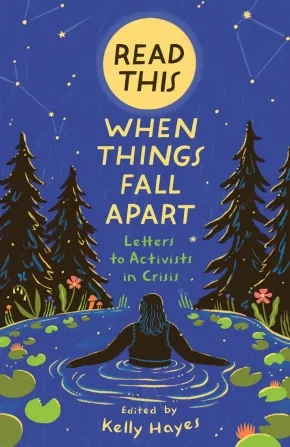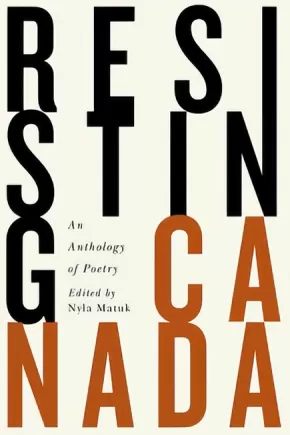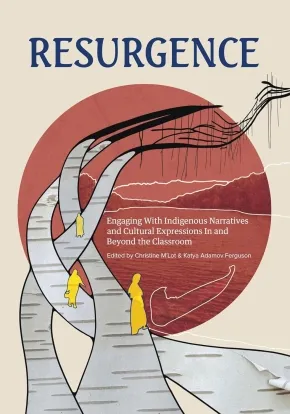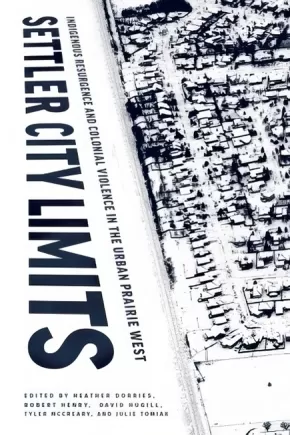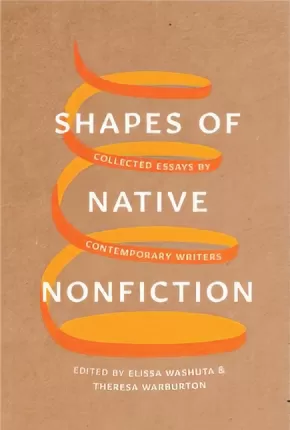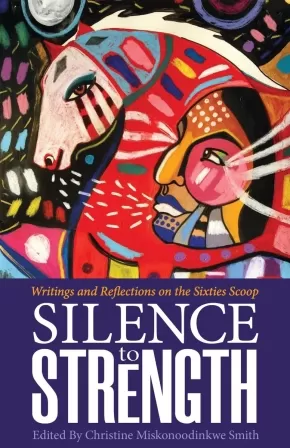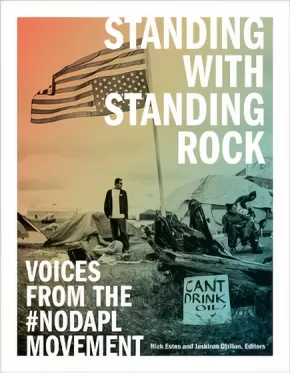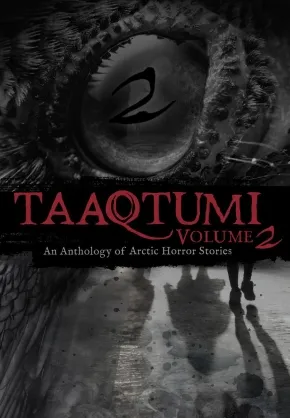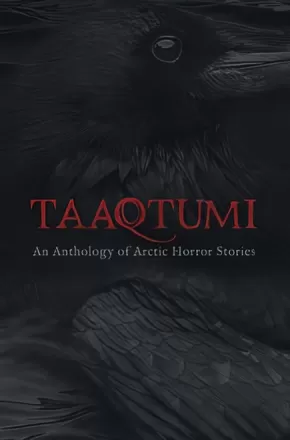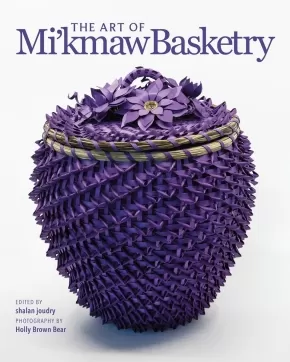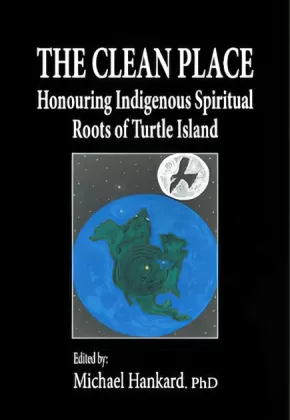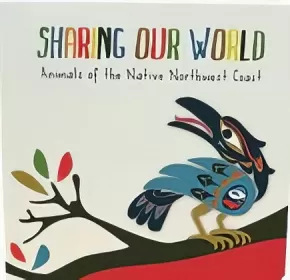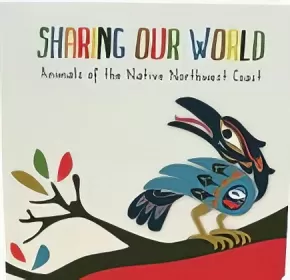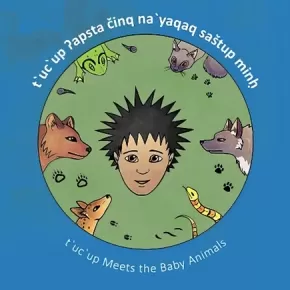
Various Indigenous Contributors
Books (12)
Read This When Things Fall Apart: Letters to Activists in Crisis
$27.95
Editors:
Format:
Paperback
Text Content Territories:
Indigenous Canadian; Indigenous American;
Reading Level: N/A
ISBN / Barcode: 9781849355841
Synopsis:
Synopsis:
A bundle of letters to activists and organizers on the frontlines in catastrophic times from Let This Radicalize You co-author Kelly Hayes.
In social movements, some heartbreaks are all but inevitable. Campaigns will be lost. Mental health crises will occur. Social ills, like gender-based violence, will manifest themselves in movement spaces. People will experience profound personal losses. Grief, alienation, and despair can grind us under. Sometimes, we need accompaniment. Sometimes, we need to be met where we’re at by a caring voice of experience. Read This When Things Fall Apart is a care package for activists and organizers building power under fascistic, demoralizing conditions. It’s an outstretched hand, offering history lessons, personal anecdotes, and practical advice about how to navigate the woes of justice work. A survival guide for the heart, this is a book for activists to keep close, and to share with co-strugglers in need.
Personal, reflective, and hopeful, Read This When Things Fall Apart harnesses the writers' individual moments of despair into living, breathing wisdom that chips away at the supposed inevitability of fascist life. Restorative like a letter from a trusted friend and invigorating like a story from a mentor, the book is an indispensable companion for all of us navigating challenging times. Featuring letters from Mariame Kaba, Ashon Crawley, Leanne Betasamosake Simpson, Leah Lakshmi Piepzna-Samarasinha, Eman Abdelhadi, Brian Merchant, and more.
Reviews
"This marvelous book is essential reading for the times we find ourselves in."—Chanda Prescod-Weinstein, author of The Disordered Cosmos: A Journey into Dark Matter, Spacetime, and Dreams Deferred
"What a gift! We all need these letters, not just in times of crisis or defeat. It is the only book you’ll hold that will hold you, free you, permit you to fail, rest, retreat, grieve, live, laugh, fight, and heal—to be human. This book must never go out of print." —Robin D. G. Kelley, author of Freedom Dreams: The Black Radical Imagination
"Read this When Things Fall Apart is a balm of these dark times. This is the book I wish I'd had as a young organizer. It is a necessary text that sent me through the full kaleidoscope of emotions—spanning rage, laughter, and sadness—but more importantly, helped ground me in times of crisis and unrelenting brutality." —Robyn Maynard, co-author of Rehearsals for Living
“If you need an antidote to despair, this book is for you. It’s a repository of fortifying collective wisdom, a tonic for our troubled times. The letters Kelly Hayes has collected offer vital insights amid the darkness, shrewd strategic advice for aspiring change-makers, and a reminder none of us are in the fight alone.” —Astra Taylor, co-author of Solidarity: The Past, Present, and Future of a World-Changing Idea
“For years I've had a saying: resist the pleasures of doom. It can feel perversely good to tell ourselves that the situation is so bad we simply can't do anything, to throw up our hands and give up. This book is an antidote to the pleasures of doom—it offers the deeper, more sustaining pleasure of solidarity, in beautiful specificity, from committed organizers in a variety of movements. They have felt despair, stared into the void of defeat, and they share concrete advice about the ways we can keep going when all feels hopeless. This book is a profound act of care.” —Sarah Jaffe, author of From the Ashes: Grief and Revolution in a World on Fire
“Read this When Things Fall Apart: Letters to Activists in Crisis is a signpost for activists who feel unsettled about themselves and the future. The contributors offer their truths and wisdom with raw vulnerability. Read this When Things Fall Apart is a resource for anyone who believes hope will guide us through the darkest of times.” —Alice Wong, editor of Disability Intimacy: Essays on Love, Care, and Desire
"These letters are like seeds in a pomegranate—gorgeous gems full of nourishment, nestled together, shaped by one another, juicy, sweet and alive. The intimacy and urgency of these wise messages, written by people who have given so much to our movements and seen so much, is just what we need right now, in harrowing times, to help new people cross the threshold to collective action and to bolster the spirits of all who continue to press on, against difficult odds. I cannot wait to give this book to my students and the people I've been working with for decades. We all need what is in here." —Dean Spade, author of Mutual Aid: Building Solidarity During This Crisis (and the Next)
“In this time of monsters burying us in grief and despair, this extraordinary collection is a steady hand with advice, analysis and affirmation. Each generous and generative letter centers our love for ourselves and our people as methodology. This book is a compelling reminder that we need each other as comrades and community, that we all have gifts to contribute to movements, and that—through uncertainty and one million experiments—we will win.” —Harsha Walia, author of Border and Rule: Global Migration, Capitalism, and the Rise of Racist Nationalism
Additional Information
172 pages | 5.50" x 8.50" | Paperback
Renewal: Indigenous Perspectives on Land-Based Education In and Beyond the Classroom
$37.00
Artists:
Format:
Paperback
Text Content Territories:
Indigenous Canadian;
ISBN / Barcode: 9781774921678
Synopsis:
Synopsis:
A guide that provides ideas and action steps for bringing Indigenous perspectives and philosophies of land-based learning into professional practice, in the classroom and beyond.
Renewal, the second book in the Footbridge series, guides K–12 educators in bringing Indigenous voices and the philosophy, principles, and practices of Indigenous land-based education into their teaching. This text encourages educators to:
- respectfully renew their own relationships with land directly engage students with the land, no matter where they are located
- guide students in learning through observation, listening, and discussion and to take action in response
- honour diverse ways of knowing and being
- understand historic injustices and engage with the contemporary Land Back movement
Through critical engagement with diverse written and visual works created by Indigenous leaders, land defenders, scholars, and Knowledge Keepers, experienced educators Christine M'Lot and Katya Adamov Ferguson support readers in connecting with Indigenous perspectives on land and water. They offer guidance on bringing Indigenous works into the classroom, including concrete ways to facilitate discussions around land-based topics, advice for land-based activities, and suggestions for how students can engage with these topics through inquiry learning.
In this resource, you will find:
- prompts for individual reflection and group discussion
- valuable concepts and methods that can be applied in the classroom and beyond
- practical action steps and resources for educators, parents, librarians, and administrators
Use this book as a springboard for your own learning journey or as a lively prompt for dialogue within your professional learning community.
Reviews
"Renewal lays out a simple and practical approach to land-based education. It works from the premise that land-based education is not simply “taking the classroom outside,” but is about "education on the land, about the land, and from the land.” The spiritual foundation of earth-based cultures is about living in your place as one small, equal part of the land (land being the entirety of air, earth, water, living beings, and spirits), a foundation common to most Indigenous cultures on this planet. I hope that others adopt it in their journey to become more holistic educators and maybe even make a positive difference in shaping how we humans interact with the land." — Dr. Garry Merkel, Director, Centre of Indigenous Land Stewardship, The University of British Columbia
Educator & Series Information
For use with grades K to 12.
This book is part of The Footbridge Series. This series aims to bridge curricular outcomes with Indigenous-centered content and perspectives from across Turtle Island. Like a footbridge, this series is intended to provide a path between Indigenous worldviews and the classroom, engaging differences, including tensions, and highlighting the importance of balance, all while helping teachers integrate Indigenous perspectives into multiple disciplines within the K-12 education system.
Contributions by Nicki Ferland, Peatr Thomas, Tyna Legault Taylor, Shannon Webb-Campbell, Tasha Beeds, Sonny Assu, Shalan Joudry, Tricia Logan, Dakota Bear, Shirli Ewanchuk, Dan Henhawk, Réal Carrière, Hetxw'ms Gyetxw Brett D. Huson, Reanna McKay (Merasty)
Photographs by Inuksaq Angotingoar, Makayla Aupaluktuq, Brendan Kingilik, Carina Kingilik, Kyle Lareau, Quin Mikkungwak, Narkyagik, Kaylee Rumbolt, Marissa Scottie, Nathan Snow, Connor Tagoona-Niego, Koen Tapatai, and Shelly Tunguaq
Additional Information
224 pages | 7.00" x 10.00" | Paperback
Resisting Canada: An Anthology of New Poetry
$22.95
Editors:
Format:
Paperback
Text Content Territories:
Indigenous Canadian;
Grade Levels: 12; University/College;
ISBN / Barcode: 9781550655339
Synopsis:
Synopsis:
A poetic letter to Canada's politicians and leaders.
Resisting Canada gathers together poets for a conversation bigger than poetic trends. The book's organizing principle is Canada--the Canada that established residential schools; the Canada grappling with the Truth and Reconciliation Commission; the Canada that has been visible in its welcome of Syrian refugees, yet the not-always-tolerant place where the children of those refugees will grow up; the Canada eager to re-establish its global leadership on the environment while struggling to acknowledge Indigenous sovereignty on resource-rich land and enabling further colonization of that land. In the face of global conflicts due to climate change, scarcity, mass migrations, and the rise of xenophobic populisms, Canada still works with a surface understanding of its democratic values--both at their noblest and most deceptive.
The work included in Resisting Canada--by celebrated poets such as Lee Maracle, Jordan Abel, Billy-Ray Belcourt, Louise Bernice Halfe, Michael Prior, and Leanne Betasamosake Simpson--addresses, among other things, Indigenous agency, cultural belonging, environmental anxieties, and racial privilege. These poems ask us to judge and resist a statecraft that refuses to acknowledge past and present wrongs. Think of Resisting Canada as a poetic letter to Canada's politicians and leaders.
Additional Information
280 pages | 5.00" x 7.50"
Resurgence: Engaging With Indigenous Narratives and Cultural Expressions In and Beyond the Classroom
$32.00
Editors:
Format:
Paperback
Text Content Territories:
Indigenous Canadian;
ISBN / Barcode: 9781774920008
Synopsis:
Synopsis:
A thoughtful guide to critical engagement with Indigenous literatures, perspectives, and teaching methods as well as ideas and action steps for bringing them into the classroom.
Resurgence is an inspiring collection of contemporary Indigenous poetry, art, and narratives that guides teachers in bridging existing K–12 curricula with Indigenous voices and pedagogies. Walk with us along the footbridge which seeks to:
- connect peoples and places
- link truth and reconciliation as ongoing processes
- symbolize the risk and urgency of this work for both Indigenous and settler educators
- engage tensions
- highlight the importance of balance, both of ideas and within ourselves
Through critical engagement with the texts, experienced educators Christine M’Lot and Katya Adamov Ferguson support readers in connecting with Indigenous narratives and perspectives, bringing Indigenous works in their classrooms, and creating more equitable and sustainable teaching practices.
In this resource, you will find
- diverse Indigenous voices, perspectives, and art forms from all across Turtle Island
- valuable concepts and methods that can be applied to the classroom and beyond
- practical action steps and resources for educators, parents, librarians, and administrators
Use this book as a springboard for your own learning journey or as a lively prompt for dialogue within your professional learning community.
Reviews
"Over the past several years, calls have come from across Canada for the inclusion of Indigenous worldviews and knowledge in all levels of education in the country. Enter...Resurgence." ––Windspeaker
Educator & Series Information
For use with K-12 curricula.
Contributors include KC Adams, Charlene Bearhead, Wilson Bearhead, Lisa Boivin, Nicola Campbell, Sara Florence Davidson, David A. Robertson, and Christina Lavalley Ruddy, and more!
Subjects / Themes: Education; Professional Development; Social Science; Indigenous Studies; Language Arts Disciplines; Study Teaching
This book is part of The Footbridge Series. This series aims to bridge curricular outcomes with Indigenous-centered content and perspectives from across Turtle Island. Like a footbridge, this series is intended to provide a path between Indigenous worldviews and the classroom, engaging differences, including tensions, and highlighting the importance of balance, all while helping teachers integrate Indigenous perspectives into multiple disciplines within the K-12 education system.
Table of Contents
Introduction
About This Book
About The Footbridge Series
Part 1: Resistance
Beyond Being Silenced by Sara Florence Davidson
- Connections
Poetry as Cultural Expression by Rita Bouvier
- Connections
T’seka Reflection by Lucy Hemphill
- Connections
Poetry by Louise Bernice Halfe
- Connections
Part 2: Resilience
Mental Health by David A. Robertson
- Connections
Writing as a Therapeutic Medium by Wanda John-Kehewin
- Connections
Birch Bark Technology by KC Adams
- Connections
Images and Health by Lisa Boivin
- Connections
Part 3: Restoring
Stories are Resurgence by Wilson Bearhead and Charlene Bearhead
- Connections
Why am I not on Star Trek? by Sonya Ballantyne
- Connections
Indigenous Spaces by Reanna Merasty
- Connections
Games as Resurgence by Elizabeth LaPensée
- Connections
Part 4: Reconnecting
Poems by Nicola I. Campbell
- Connections
Paths of Tradition by Russell Wallace
- Connections
Let the Children Play by Victoria McIntosh
- Connections
Ethnomathematics and Beading by Christina Ruddy
- Connections
The Contributors
Additional Resources
Index
Additional Information
224 pages | 7.00" x 10.00" | Paperback
Settler City Limits: Indigenous Resurgence and Colonial Violence in the Urban Prairie West
$27.95
Editors:
Format:
Paperback
Text Content Territories:
Indigenous American; Native American; Indigenous Canadian; First Nations; Métis;
Grade Levels: University/College;
ISBN / Barcode: 9780887558436
Synopsis:
Synopsis:
While cities like Winnipeg, Minneapolis, Saskatoon, Rapid City, Edmonton, Missoula, Regina, and Tulsa are places where Indigenous marginalization has been most acute, they have also long been sites of Indigenous placemaking and resistance to settler colonialism.
Although such cities have been denigrated as “ordinary” or banal in the broader urban literature, they are exceptional sites to study Indigenous resurgence. The urban centres of the continental plains have featured Indigenous housing and food co-operatives, social service agencies, and schools. The American Indian Movement initially developed in Minneapolis in 1968, and Idle No More emerged in Saskatoon in 2013.
The editors and authors of Settler City Limits, both Indigenous and settler, address urban struggles involving Anishinaabek, Cree, Creek, Dakota, Flathead, Lakota, and Métis peoples. Collectively, these studies showcase how Indigenous people in the city resist ongoing processes of colonial dispossession and create spaces for themselves and their families.
Working at intersections of Indigenous studies, settler colonial studies, urban studies, geography, and sociology, this book examines how the historical and political conditions of settler colonialism have shaped urban development in the Canadian Prairies and American Plains. Settler City Limits frames cities as Indigenous spaces and places, both in terms of the historical geographies of the regions in which they are embedded, and with respect to ongoing struggles for land, life, and self-determination.
Contributors: Chris Andersen, Nicholas Brown, Elizabeth Comack, Heather Dorries, Nick Estes, Adam Gaudry, Robert Henry, David Hugill, Sharmeen Khan, Corey Laberge, Brenda Macdougall, Tyler McCreary, Lindsey Claire Smith, Michelle Stewart, Zoe Todd, Julie Tomiak
Reviews
“Settler City Limits breaks ground, shattering the powerful authoritative structures of racism that have dichotomized rural and urban space, and Indigenous peoples’ relation to these as a central force sustaining and fortifying settler colonialism.” – Heather A. Howard-Bobiwash, Associate Professor of Anthropology, Michigan State University, and Affiliated Faculty Centre for Indigenous Studies, University of Toronto
Educator Information
Table of Contents
Introduction
Part 1 Land and Politics
Part 2 Contestation, Resistance, Solidarities
Part 3 Policing and Social Control
Part 4 Life and Death
Additional Information
368 pages | 6.00" x 9.00"
Authenticity Note: Contains contributions from both Indigenous peoples and settlers.
Shapes of Native Nonfiction: Collected Essays by Contemporary Writers
$41.00
Editors:
Format:
Paperback
Text Content Territories:
Indigenous American; Indigenous Canadian;
Grade Levels: 12; University/College;
ISBN / Barcode: 9780295745756
Synopsis:
Synopsis:
Just as a basket’s purpose determines its materials, weave, and shape, so too is the purpose of the essay related to its material, weave, and shape. Editors Elissa Washuta and Theresa Warburton ground this anthology of essays by Native writers in the formal art of basket weaving. Using weaving techniques such as coiling and plaiting as organizing themes, the editors have curated an exciting collection of imaginative, world-making lyric essays by twenty-seven contemporary Native writers from tribal nations across Turtle Island into a well-crafted basket.
Shapes of Native Nonfiction features a dynamic combination of established and emerging Native writers, including Stephen Graham Jones, Deborah Miranda, Terese Marie Mailhot, Billy-Ray Belcourt, Eden Robinson, and Kim TallBear. Their ambitious, creative, and visionary work with genre and form demonstrate the slippery, shape-changing possibilities of Native stories. Considered together, they offer responses to broader questions of materiality, orality, spatiality, and temporality that continue to animate the study and practice of distinct Native literary traditions in North America.
Reviews
"In this anthology, shape matters. It turns the essay into a resistant form, pushing against the myth of the ‘disappearing Native’ and asserting a new narrative, one that isn’t subject to colonizing. . . . Shapes of Native Nonfiction is full of cognitive and emotional work. It turns the essay into something alive and breathing." - Cincinnati Review
"The medium is the message in this formally daring anthology of essays from Native writers, organized into basket-weaving themes such as ‘coiling’ and ‘plaiting.’ In these 27 essays by writers hailing from multiple tribal nations, some established and some newcomers, the Native experience is interrogated, elucidated, and celebrated." - Esquire
"In gathering contemporary Native nonfiction, this book elucidates the roots of the form-conscious essay and brings together the exciting current work of Native writers. In a sweeping decolonizing gesture, this anthology challenges the nonfiction canon as it’s been taught and creates a porous new space in its place." - Essay Daily
"Shapes of Native Nonfiction is. . . an accessible, engaging book, both for those who have read widely on the subject and for those seeking a place to begin." - New York Journal of Books
"This new collection of essays from established and emerging contemporary Indigenous writers is stunning both in-depth and scope. . . . The collection, expertly curated and structured by writer and Cowlitz Indian Tribe member Elissa Washuta (whose incredible essay Apocalypse Logic also appears here) and literary scholar Theresa Warburton, shines in every piece and in its existence as a whole. . . . In these pages, storytelling is a way of developing new Native nonfiction literary possibility." - Literary Hub
"Shapes of Native Nonfiction introduces the reader to a unique collection of voices, telling stories that shift from lost to living language, from history to lived experience. These shifts create new shapes for Indigenous writers to inhabit, explore and share. In this anthology, that shaping makes for a powerful read, and an absolutely necessary one" - High Country News
"In this far-ranging collection of essays, Indigenous writers explore family, home, landscape, identity, trauma, history, and memory. Some of the essays are about writing itself. Others tell stories about particular experiences or moments. Still others are more outwardly focused, exploring art, culture, and politics. Part of what makes this book so unique is the various innovative forms the essays take." - Book Riot
Additional Information
302 pages | 6.00" x 9.00" | Paperback
Silence to Strength: Writings and Reflections on the 60s Scoop
$18.00
Editors:
Format:
Paperback
Text Content Territories:
Indigenous Canadian;
Grade Levels: 12; University/College;
ISBN / Barcode: 9781928120339
Synopsis:
Synopsis:
From the 1960s through the 1980s the Canadian Children's Aid Society engaged in a large-scale program of removing First Nations children from their families and communities and adopting them out to non-Indigenous families. This systemic abduction of untold thousands of children came to be known as the Sixties Scoop. The lasting disruption from the loss of family and culture is only now starting to be spoken of publicly, as are stories of strength and survivance.
In Silence to Strength: Writings and Reflections on the 60s Scoop, editor Christine Miskonoodinkwe Smith gathers together contributions from twenty Sixties Scoop survivors from across the territories of Canada. This anthology includes poems, stories and personal essays from contributors such as Alice McKay, D.B. McLeod, David Montgomery, Doreen Parenteau, Tylor Pennock, Terry Swan, Lisa Wilder, and many more. Courageous writings and reflections that prove there is strength in telling a story, and power in ending the silence of the past.
Reviews
"This is an excellent collection and I recommend it to all who are interested in learning the truth about Indigenous Peoples by reading what they have written, not what has been written about them by non-Indigenous writers. The striking cover art is by George Littlechild, also a survivor of the Sixties Scoop." - MariJo Moore
Additional Information
140 pages | 5.50" x 8.50" | Paperback
Standing with Standing Rock: Voices from the #NoDAPL Movement (3 in Stock) - ON SALE
$26.96 $35.95
Editors:
Format:
Paperback
Text Content Territories:
Indigenous American;
Grade Levels: 12; University/College;
ISBN / Barcode: 9781517905361
Synopsis:
Synopsis:
Dispatches of radical political engagement from people taking a stand against the Dakota Access Pipeline.
It is prophecy. A Black Snake will spread itself across the land, bringing destruction while uniting Indigenous nations. The Dakota Access Pipeline is the Black Snake, crossing the Missouri River north of the Standing Rock Indian Reservation. The oil pipeline united communities along its path—from North Dakota, South Dakota, Iowa, and Illinois—and galvanized a twenty-first-century Indigenous resistance movement marching under the banner Mni Wiconi—Water Is Life! Standing Rock youth issued a call, and millions around the world and thousands of Water Protectors from more than three hundred Native nations answered. Amid the movement to protect the land and the water that millions depend on for life, the Oceti Sakowin (the Dakota, Nakota, and Lakota people) reunited. A nation was reborn with renewed power to protect the environment and support Indigenous grassroots education and organizing. This book assembles the multitude of voices of writers, thinkers, artists, and activists from that movement.
Through poetry and prose, essays, photography, interviews, and polemical interventions, the contributors, including leaders of the Standing Rock movement, reflect on Indigenous history and politics and on the movement’s significance. Their work challenges our understanding of colonial history not simply as “lessons learned” but as essential guideposts for current and future activism.
Contributors: Dave Archambault II, Natalie Avalos, Vanessa Bowen, Alleen Brown, Kevin Bruyneel, Tomoki Mari Birkett, Troy Cochrane, Michelle L. Cook, Deborah Cowen, Andrew Curley, Martin Danyluk, Jaskiran Dhillon, Roxanne Dunbar-Ortiz, Liz Ellis, Nick Estes, Marcella Gilbert, Sandy Grande, Craig Howe, Elise Hunchuck, Michelle Latimer, Layli Long Soldier, David Uahikeaikalei‘ohu Maile, Jason Mancini, Sarah Sunshine Manning, Katie Mazer, Teresa Montoya, Chris Newell, The NYC Stands with Standing Rock Collective, Jeffrey Ostler, Will Parrish, Shiri Pasternak, endawnis Spears, Alice Speri, Anne Spice, Kim TallBear, Mark L. Tilsen, Edward Valandra, Joel Waters, Tyler Young.
Reviews
"As our songs and prayers echo across the prairie, we need the public to see that in standing up for our rights, we do so on behalf of the millions of Americans who will be affected by this pipeline."—David Archambault II, from the interior
"There is no alternative to water. There is no alternative to this Earth. This fight has become my life, and it’s not over. I think this is only the beginning for me, for all of us. Do you want a future for your children and grandchildren? If you want them to have a future then stand with Standing Rock because this is just the beginning of a revolution."—Zaysha Grinnell, from the interior
"We will put our best warriors in the front. We are the vanguard. We are the Hunkpapa Lakota. That means the horn of the buffalo. That’s who we are. We are protectors of our nation of Oceti Sakowin, the Seven Council Fires. Know who we are."—Phyllis Young
Additional Information
448 pages | 7.00" x 9.00"
Taaqtumi 2: An Anthology of Arctic Horror Stories
$22.95
Format:
Paperback
Text Content Territories:
Indigenous Canadian; Inuit;
Grade Levels: 12; University/College;
ISBN / Barcode: 9781772275834
Synopsis:
Synopsis:
This new collection of horror short fiction weaves together contemporary Arctic settings with ancient monsters and mysterious beings that have been said to stalk the tundra for centuries.
Featuring authors from across the Canadian Arctic, this new volume of Taaqtumi—an Inuktitut word that means “In the Dark”—reveals just how horrifying the dark can be.
Featuring new fiction from award-winning authors Aviaq Johnston, Rachel and Sean Qitsualik-Tinsley and Jamesie Fournier, as well as new voices in the genre, this collection is perfect for any horror lover.
Educator & Series Information
Includes stories from Indigenous authors across the Canadian Arctic.
This book is part of the Taaqtumi series.
Additional Information
184 pages | 6.00" x 9.00" | b&w illustrations | Paperback
Taaqtumi: An Anthology of Arctic Horror Stories
$19.95
Format:
Paperback
Text Content Territories:
Indigenous Canadian; First Nations; Inuit;
Grade Levels: 12; University/College;
ISBN / Barcode: 9781772272147
Synopsis:
Synopsis:
“Taaqtumi” is an Inuktitut word that means “in the dark”—and these spine-tingling horror stories by Northern writers show just how dangerous darkness can be. A family clinging to survival out on the tundra after a vicious zombie virus. A door that beckons, waiting to unleash the terror behind it. A post-apocalyptic community in the far North where things aren’t quite what they seem. These chilling tales from award-winning authors Richard Van Camp, Rachel and Sean Qitsualik-Tinsley, Aviaq Johnston, and others will thrill and entertain even the most seasoned horror fan.
Educator & Series Information
Includes stories from northern Indigenous authors.
This book is part of the Taaqtumi series.
Additional Information
260 pages | 6.00" x 9.00" | b&w illustrations
The Art of Mi'kmaw Basketry
$29.95
Artists:
Format:
Paperback
Reading Level: N/A
ISBN / Barcode: 9781459507210
Synopsis:
Synopsis:
Mi’kmaw artists are creating a wide range of imaginative and beautiful work using the skills and traditions of basketry weaving given to them by their elders and ancestors. In this book, nine artists present their work and their stories in their own words. Their unique artistic practices reflect their relationships to the natural world around them and their abilities to create unique and beautiful objects using a mix of traditional and contemporary materials and forms.
Each artist's account of their background and practice is introduced by editor shalan joudry. Their words stand alongside examples of their art, photographed in their studios by Holly Brown Bear.
This book is a milestone in creating awareness of and celebrating a group of important contemporary artists working today in Mi’kma'ki, the traditional territory which embraces Nova Scotia, New Brunswick, Prince Edward Island and portions of Quebec.
Featured artists:
- Peter Clair, Elsipogtog First Nation, New Brunswick.
- Virick Francis, Eskasoni First Nation, Nova Scotia.
- Stephen Jerome, Gesgapegiag, Quebec.
- Della Maguire, Glooscap First Nation, Nova Scotia.
- Frank Meuse, L'sittkuk First Nation (Bear River), Nova Scotia.
- Margaret Peltier, We'koqma'q First Nation, Nova Scotia.
- Sandra Racine, Elsipogtog First Nation, New Brunswick.
- Nora Richard, Lennox Island, Prince Edward Island.
- Ashley Sanipass, Indian Island, New Brunswick.
Additional Information
10.00" x 8.03" | Paperback | 100+ Colour Photographs
The Clean Place: Honouring Indigenous Spiritual Roots of Turtle Island (1 in Stock)
$33.00
Editors:
Format:
Paperback
Text Content Territories:
Indigenous American; Indigenous Canadian;
Grade Levels: 12; University/College;
ISBN / Barcode: 9781926476261
Synopsis:
Synopsis:
Within Turtle Island Indigenous people know that its spiritual centre is the ultimate mover within everything we do and are surrounded by. The Clean Place: Honouring Indigenous Spiritual Roots of Turtle Island illuminates the strong connection Indigenous people have with the land and the importance of a paradigm shift worldwide toward sustainable ways of thinking and being. The voices and perspectives of the writers weave traditional teachings, spirituality, and messages of hope, change, and transformation.
Reviews
"Hankard’s compilation takes us on a journey throughout Turtle Island and beyond, across sacred oceans to the ancestral homelands of our relatives. This journey illuminates a connecting theme of Indigenous existence on, from and with the land as a sacred being. Upon a shared reading of a chapter with my son, it was clear he embodied the teachings within – he was doing his part in maintaining the Clean Place." - Cindy Peltier, PhD, Chair Indigenous Education Nipissing University
Educator Information
Table of Contents
Dedication
Acknowledgement
Gchi-Biimskogaabiwiding
Introduction
Michael Hankard
1. I Still Have the Place
Lorraine Rekmans
2. Unsettling the Clean Place: Beginnings of a Philosophical Reflection
Réal Fillion
3. Giving Thanks for the Light
Ross Hoffman
4. In Place and Time: Indigenous Women’s Re-Weaving and Resistances
Laura Hall
5. The Healing Journey: Spirituality, Cultural Connection and the Significance of Aboriginal Peoples Relationship to the Land
John E. Charlton & John G. Hansen
6. Honouring Papatuanuku: Honouring Mother Earth
Taima Moeke-Pickering
7. Stewards of the Sacred
Cynthia Landrum
8. A Buffalo’s Breath on a Cold Winter Morning
Michael Hankard
9. Wahi Pana: A Hawaiian Sense of Place and Relationship to the Land
Umi Perkins
10. The Land is One with Us, and We are One with the Land: A Personal Journal
Emily Faries
11. Caring for Past/Present/Future Through Anishinabe Photography on the Land
Celeste Pedri-Spade
12. Washed ‘Clean’ in Zimbabwe: The Dzivaguru Creation Story
Collis G. Machoko
13. Reflections on Urban Connections to Land and Ceremony: Uncovering the Virtues of Creativity, Cultural Resiliency, Flexibility and Tenacity
Barbara Waterfall
14. Biinidsa: Going Home to Clean Up
Kevin FitzMaurice
Epilogue: Clean Water in the ‘Clean Place’?
Maurice Switzer
About the Authors
Additional Information
251 pages | 6.00" x 9.00"
Kids Books (3)
Sharing Our World: Animals of the Native Northwest Coast (BB)
$12.00
Artists:
Format:
Board Book
Text Content Territories:
Indigenous Canadian;
Reading Level: N/A
ISBN / Barcode: 9781554761883
Synopsis:
Synopsis:
Two legged and four legged beings are beautifully illustrated and cultural meanings provided from the: Nuxalk, Namgis, Coast Salish, Kwakwaka'wakw, Haisla, Heiltsuk, Haida, Bella Bella, Tsimshian, Kwa Na Ki Nulth and Nuchatlaht Nations.
Sharing Our World: Animals of the Native Northwest Coast (HC)
$18.00
Artists:
Format:
Hardcover
Text Content Territories:
Indigenous Canadian; First Nations; Tsimshian (Ts'msysen); Salish; Coast Salish; Haisla (Kitamaat); Heiltsuk (Bella Bella); Haida; Nuxalk (Bella Coola); Nuu-chah-nulth (Nootka); Kwakwaka'wakw (Kwakiutl); Namgis;
ISBN / Barcode: 9781554718764
Synopsis:
Synopsis:
Two legged and four legged beings are beautifully illustrated and cultural meanings provided from the: Nuxalk, Namgis, Caost Salish, Kwakwaka'wakw, Haisla, Heiltsuk, Haida, Bella Bella, Tsimshian, Kwa Na Ki Nulth and Nuchatlaht Nations.
Some of the contributors include: Cranmer, Ryan; Horne Sr., Francis; Windsor, Paul; Bulpitt, Corey; Young, T.J.; Houstie, Ben; Isaac, Eugene; Moraes, Corey W.; Starr, Terry; John, Rose Elsie
t’uc’up Meets the Baby Animals
$14.00
Format:
Paperback
Text Content Territories:
Indigenous Canadian; First Nations; Nuu-chah-nulth (Nootka);
Reading Level: N/A
ISBN / Barcode: 9780995012790
Synopsis:
Synopsis:
meʔiƛqac ʔis i ʔukłamaḥ t`uc`up
Walk through the forest with t`uc`up as he meets the baby animals, explores their homes, and learns about Nuu-Chah-Nulth language and culture.
This book is written in Nuu-Chah-Nulth.
Educator & Series Information
Language: Nuu-Chah-Nulth
Simple illustrations make the text easy to follow for any reader.
This book is part of the T'uc'up Series.
The Port Alberni Friendship Center offers sincere gratitude to the Elders and Knowledge Keepers who contributed their Traditional Knowledge, Language Translation, and Stories so generously in the creation of the book, including the following:
yaʔałat – Kathy Robinson
wiic̓aʔin – Erma Robinson
kʷiʔiil – Katherine Robinson
yaasuisʔaks – Jessica Sault
Additional Information
21 × 21 × 0.5 cm

